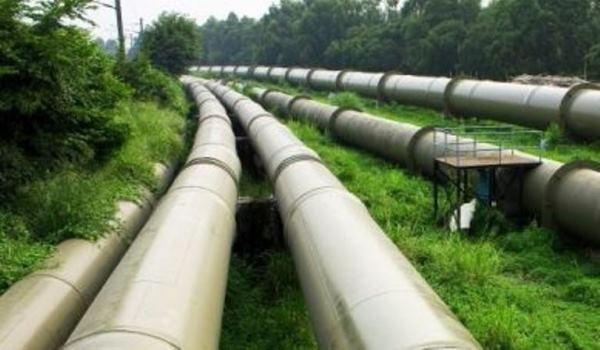Nigeria’s Trans-Niger Pipeline (TNP), the nation’s largest oil pipeline, has resumed operations following a temporary shutdown caused by a recent explosion and fire. The incident has deepened the ongoing political crisis in Rivers State, raising concerns about the stability of Nigeria’s oil production and its economic outlook.
The Trans-Niger Pipeline, which transports approximately 450,000 barrels of crude oil daily, was temporarily closed after an explosion on March 17, 2025. The blast, which significantly damaged the pipeline’s infrastructure, disrupted oil exports and sparked fears about the security of Nigeria’s critical energy assets.
A senior oil executive, who requested anonymity, confirmed that repairs have been completed and operations have resumed. However, he cautioned that the situation remains fragile due to the ongoing crisis in Rivers State.
“The threat to oil production is still there despite the resumption of the Trans-Niger Pipeline,” the executive stated.
On March 18, 2025, President Bola Tinubu declared a state of emergency in Rivers State, suspending Governor Siminalayi Fubara, his deputy Ngozi Odu, and all elected members of the State House of Assembly for six months. The decision was prompted by escalating violence and the vandalization of petroleum pipelines, which are believed to be linked to the ongoing political crisis.
Tinubu appointed retired Vice Admiral Ibokette Ibas as the state’s administrator, tasked with stabilizing the situation. In his address, Tinubu emphasized the need to restore peace and order, stating:
“This declaration does not affect the judicial arm of Rivers State, which shall continue to function in accordance with its constitutional mandate.”
Barely a day after the TNP resumed operations, another explosion occurred at a pipeline manifold in the Omwawriwa axis of Ogba-Egbema-Ndoni Local Government Area. The blast, reportedly at a manifold connecting pipelines operated by Seplat, Agip, and Shell, sent thick smoke and flames into the sky.
Though the cause of the explosion remains unconfirmed, police authorities have arrested two individuals for questioning.
“The Rivers State Police Command has commenced a thorough investigation to determine the cause of the fire,” said Grace Iringe-Iroko, the police spokesperson. She added that Shell Petroleum Development Company (SPDC) had implemented necessary safety protocols, including shutting down the affected pipeline.
Impact on Nigeria’s Oil Production and Economy
The disruption of the Trans-Niger Pipeline comes at a critical time for Nigeria, which is striving to meet its OPEC quota of 1.5 million barrels per day (bpd) and stabilize its economy. The Nigerian Upstream Petroleum Regulatory Commission (NUPRC) reported a decline in crude oil production from 1.73 million bpd in January to 1.671 million bpd in February, significantly below the government’s forecast of over 2 million bpd for the 2025 budget.
The ongoing unrest and pipeline disruptions pose a significant threat to Nigeria’s economic stability. The government aims to generate ₦19.60 trillion (56% of its revenue) from the oil sector, relying on an oil price above $75 per barrel and a production level of at least 2.06 million bpd.
The resumption of operations at the Trans-Niger Pipeline is a positive development, but the fragile political climate in Rivers State raises uncertainties about the sustainability of Nigeria’s oil production. With the state’s political crisis showing no signs of abating, there is a pressing need for effective conflict resolution to safeguard Nigeria’s critical energy infrastructure and economic stability.
Stay tuned to 9am News Nigeria for more Breaking News, Business News, Sports updates And Entertainment Gists.
















